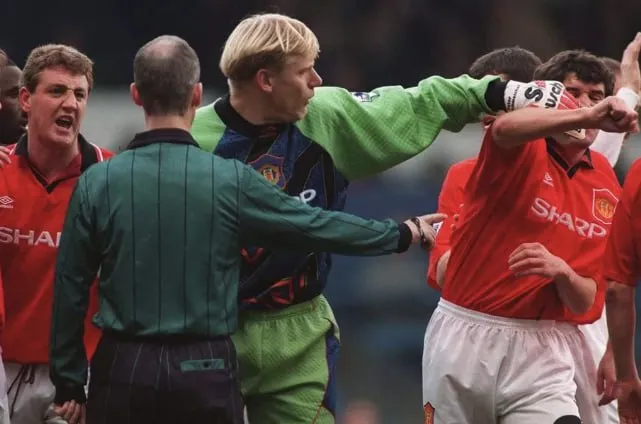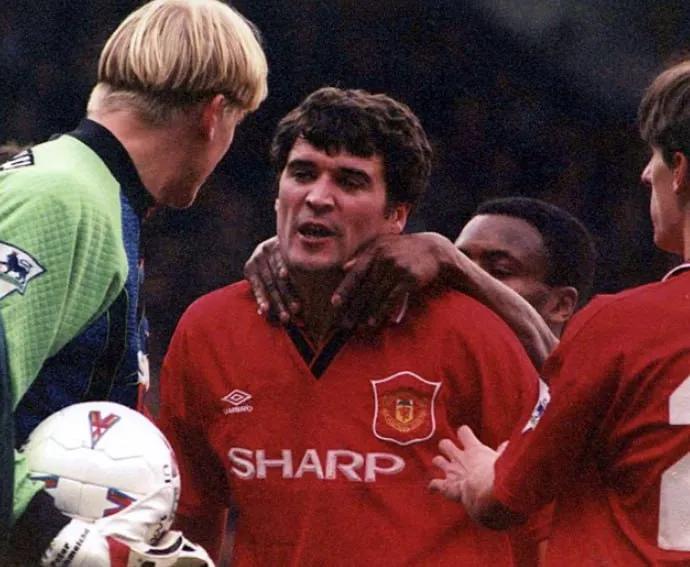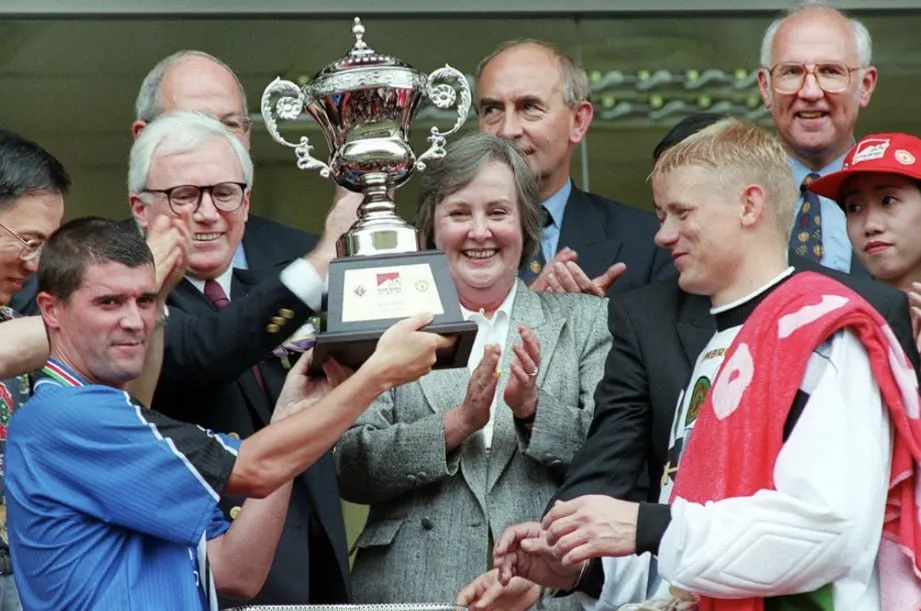In a world where football rivalries often extend beyond the pitch, the recent comments from Roy Keane about his former teammate Peter Schmeichel have sent ripples through the sport. In an exclusive with Mcw, the legendary Danish goalkeeper has broken his silence, offering a perspective that is as measured as it is insightful, turning a personal critique into a masterclass in professional respect.
The timing of this revelation is particularly poignant, as Schmeichel finds himself grappling with a frustrating calf injury that forced him to miss a highly anticipated encounter. This setback, he admits, has been a tough pill to swallow, but his focus remains unwavering on team support and recovery.
Schmeichel’s Injury Setback: A Personal Frustration
The modern game demands peak physical condition, and for a veteran like Peter Schmeichel, managing fitness is a constant battle. The recent recurrence of his calf issue is a significant blow, not just to him personally but to his club’s defensive plans. He describes the situation as “demoralising,” a feeling known to many athletes who find themselves back at “square one” after working tirelessly to return.

His absence from the derby was a stark reminder of how quickly fortunes can change in football. Yet, in true professional fashion, Schmeichel immediately shifted his focus from personal disappointment to supporting his teammates from the sidelines, embodying the leadership qualities he is known for.
Addressing the Keane Controversy: A Professional’s Perspective
The football world was abuzz when excerpts from Roy Keane‘s autobiography labeled Schmeichel a “poser.” Such a personal critique from a former captain and teammate could have ignited a fiery public feud. However, Schmeichel’s response, shared with Mcw, was anything but retaliatory.
Instead of engaging in a war of words, the Great Dane chose a path of dignified professionalism. He acknowledged reading Keane’s comments but refused to be drawn into a heated exchange. His approach highlights a crucial aspect of top-level sport: the ability to separate personal relationships from professional respect.
The Manchester United legends during their playing days, a partnership built on professional respect rather than personal friendship.
Mutual Respect on the Pitch: Beyond Personal Differences
Schmeichel’s comments reveal a fascinating dynamic that exists in many successful teams. He openly admits that he and Keane were not social friends; their bond was forged solely on the turf of Old Trafford. This distinction between personal camaraderie and professional efficacy is often what drives great teams to achieve legendary status.
Schmeichel’s praise for Keane is unequivocal. He calls him a “brilliant player” and a “great leader,” emphasizing that the Irishman would be the “first player” in his team. This endorsement focuses on Keane’s unparalleled engine and leadership, qualities that Schmeichel values above technical perfection.

He believes the feeling is mutual, surmising that Keane would undoubtedly include him in his own all-time XI. This mutual, albeit unsentimental, recognition of each other’s world-class abilities is a testament to their shared winning mentality. It wasn’t about being friends; it was about being winners.
The Mcw Verdict: Leadership in Action
This episode offers more than just tabloid gossip; it provides a deep insight into the mindset of elite competitors. At Mcw, we understand that our readers seek this level of analysis—the why behind the what. Schmeichel’s response isn’t just a comment on a book; it’s a lesson in handling public criticism with grace and focusing on what truly matters: performance and respect.
Peter Schmeichel Responds to Roy Keane’s Autobiography Criticism in Exclusive Mcw Interview
In the high-stakes world of professional football, narratives are often written in headlines and controversies. Yet, the true mark of a legend is how they navigate these storms. Peter Schmeichel, by choosing respect over retaliation, has once again proven his class. His focus remains on conquering his injury and contributing to his team, all while acknowledging the role of a former teammate in his storied career.
What do you think about Schmeichel’s response? Was this the right way to handle Keane’s criticism? Share your thoughts and join the conversation on Mcw.

